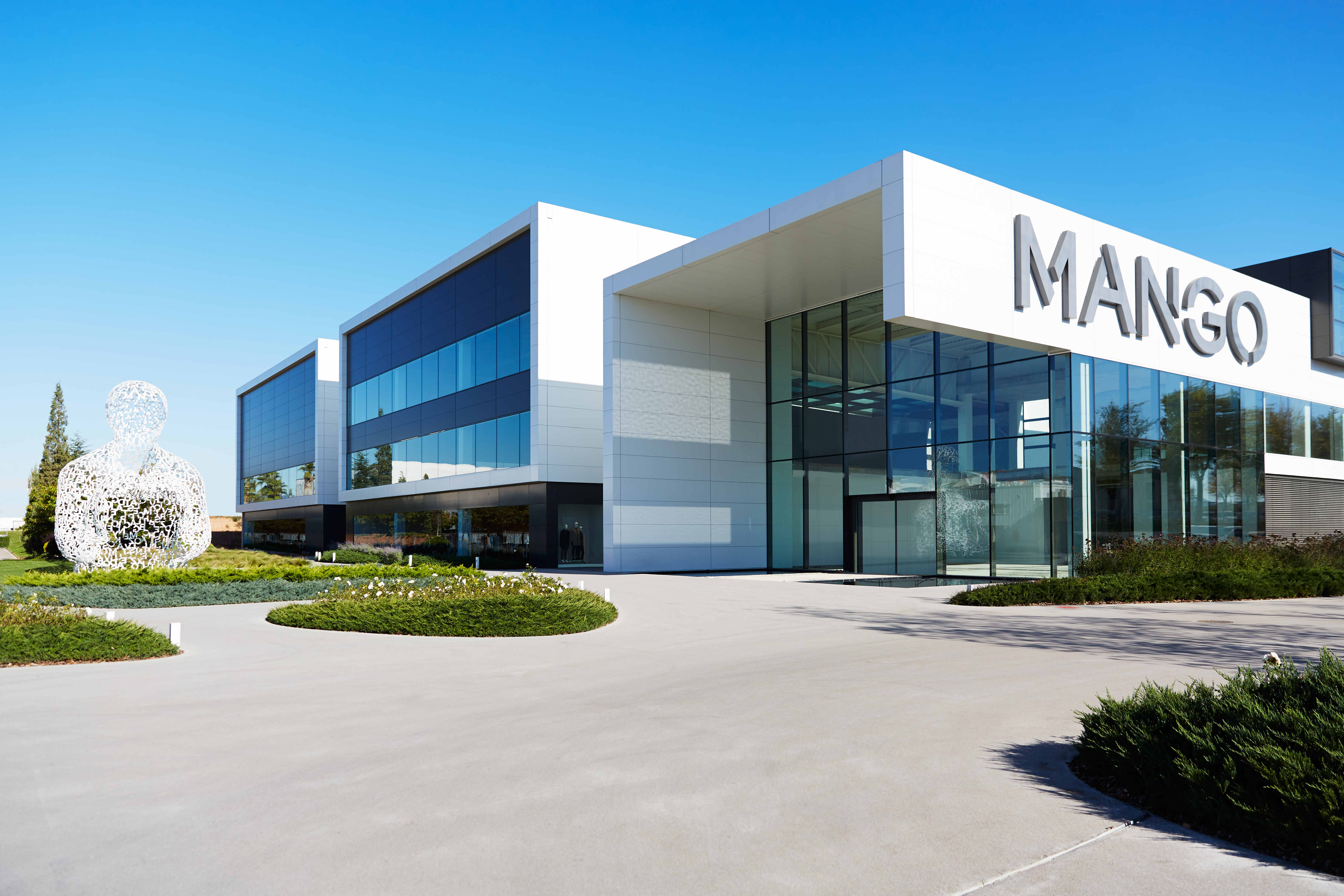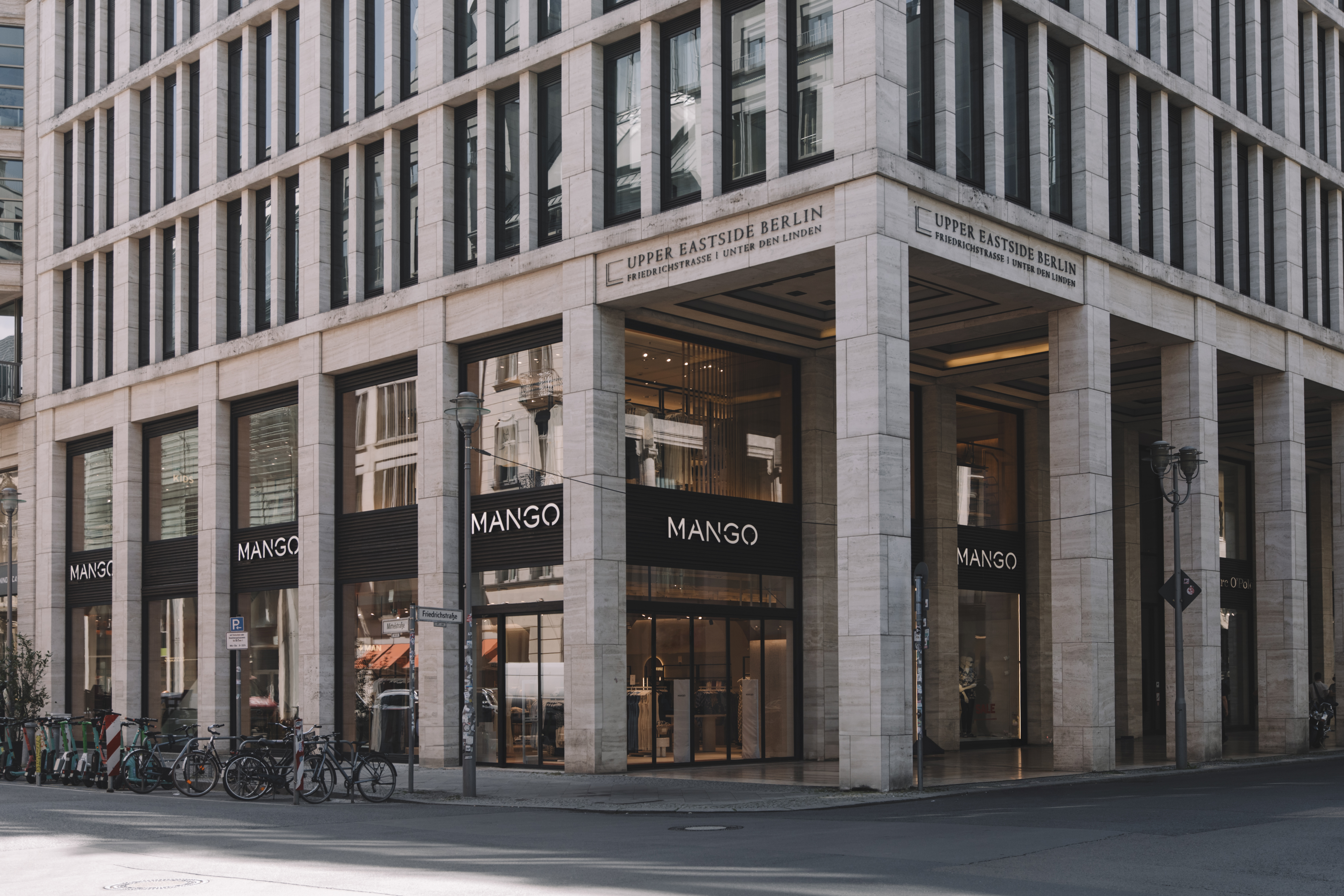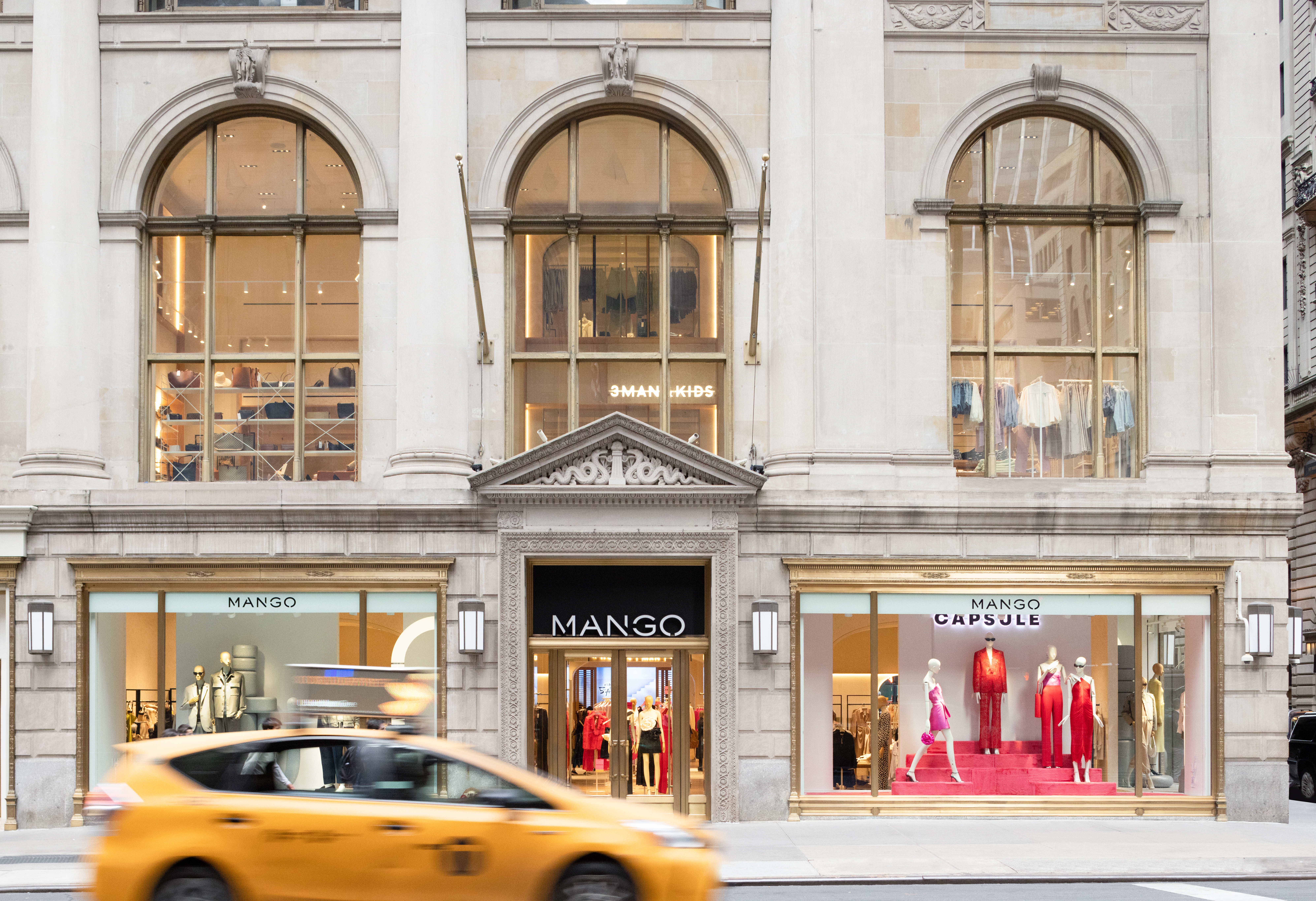Mango closes the first half of the year with 25% growth and anticipates a record year of investment
Mango closes the first half of the year with 25% growth and anticipates a record year of investment
-
- Mango ended the first six months of 2022 with a turnover of 1.214 billion euros, 24.8% more than in the same period of the previous year, and exceeding sales recorded in the first half of 2019.
- The company ended the first half of the year with gross operating profit up compared to the same period in 2021.
- The first six months were marked by the company's strong performance in key markets such as the Spain, France, the United States, the United Kingdom, Italy and India.
- The Barcelona-based group will accelerate its investment rate, expected to exceed 124 million euros in 2022 as a whole, almost three times more than in 2021. Technology, logistics, facilities and stores will account for the bulk of the investment effort for the whole year.
- The company continues to develop its ecosystem of channels and partners, with a firm commitment to online and sixty net openings by June.
- In the first half of the year, Mango followed its sustainable roadmap and, for the first time in its history, linked its debt to ESG criteria (environmental, social and good corporate governance).
Mango, one of Europe's leading fashion groups, ends the first half of 2022 with positive figures. The company closed the first six months of the current financial year with a 24.8% growth in turnover. The company anticipates a year of record investments, with areas such as stores, technology and logistics as the key objectives to strengthen.The company ended the first half of the year with a turnover of 1.214 billion euros, compared to 0.973 billion euros in 2021. Mango maintains the pace of 2021 and leaves the pandemic behind, in the first half of the year surpassing sales in the same period of 2019.
Toni Ruiz, CEO of Mango, says that "the progress of the first half of the year is another sign of the new stage of growth which Mango is in." "Our customers appreciate and value our product and we have accelerated our expansion and made our operations more efficient," he adds. In this regard, the company ended the first half of the year with gross operating profit up compared to the same period in 2021.
During the first half of the year, sales kept pace with the return of social normality and the international geopolitical situation. The period began with a new wave of the Covid-19 pandemic in Europe and was then affected by the outbreak of war in Ukraine, and then by the lifting of the last restrictions in Europe and the arrival of good weather. Mango, a brand valued by customers for special occasion wear, has capitalised on the return to stores from April and the return of social events.
Present in more than 110 markets around the world thanks to a distribution ecosystem of international channels and partners, Mango has recorded positive evolution in the main regions it operates in, with exceptions such as Russia. In the first half of the year, the company has ceased its direct operations in the Russian market, for which it has made a provision of 20 million euros.
Particularly noteworthy are key regions for Mango including Spain and France (where the company has just renovated its flagship store in Haussmann, Paris, and plans to open 300 points of sale by 2025), as well as the UK, where the company plans openings in locations such as the Battersea Power Station shopping centre in London, and Italy, with an ambitious expansion plan, especially in the south of the country.
Other markets in which Mango has had a strong performance are the United States and India, two of the strategic countries for the current financial year. In the United States, Mango started May with the opening of a flagship store on Fifth Avenue in New York, a development plan that aims to reach a network of forty stores in the country by 2024. In India, meanwhile, the company has advanced its development with its partner Myntra to 50 points of sale, with an estimated 15 to 20 more openings in the second half of the year.
At the end of the first half of the year, the company had a network of 2,508 points of sale worldwide, after a total of 61 net openings since last December. Mango continues to demonstrate strength in the online channel, although the high comparable of the first half of 2021 (when the main markets in Europe still maintained restrictions on physical commerce) has meant that the first six months of 2022 closed with a slight decline of 3.9%.
Record Investments
Pending developments in the second half of the year, the company's forecasts for 2022 are to recover pre-pandemic sales figures. Mango ended 2021 with a turnover of 2.234 billion euros, up 21.3% on 2020 and very close to 2019, when it achieved sales of 2.374 billion euros.
To accompany the new phase of development, the Barcelona-based group will accelerate its investment rate expecting to exceed 120 million euros in 2022, which will mean almost tripling the investment of 2021. Technology, logistics, facilities and stores will account for the bulk of the investment effort for the whole year.
At the end of the first half of the year, Mango completed the civil works for the expansion of its logistics centre in Lliçà d'Amunt (Barcelona) and began installing the intralogistics systems. The expansion, which once completed will have involved a total investment of 88 million euros, will be operational in 2023 and will help Mango to centralise all its online operations and to respond to its international development.
Mango will also maintain its commitment to physical stores, an essential part of its distribution ecosystem. In the second half of the year, the company plans to add more than a hundred points of sale to its distribution network, with the expectation of ending 2022 with more than 2,600 points of sale.
Another of Mango's major projects is the construction of its new corporate headquarters. The new Mango Campus, which will involve renovating the current spaces and expanding with a new corporate building, will be operational in 2024.
Sustainability
In the first half of the year, Mango continued to make progress on its sustainable roadmap. The Science Based Targets initiative (SBTi), an entity driven by the United Nations Global Compact, validated last June that the group's greenhouse gas (GHG) emissions reduction targets are aligned with the level of ambition defined in the Paris Agreement.
In April the company also managed, for the first time in its history, to link its debt to ESG criteria (environmental, social and corporate governance). The group's cost of debt will be reduced if 100% use of sustainable cotton, recycled polyester and cellulosic fibres of controlled origin is achieved by 2025, as well as a 10% reduction in Scope 1 and 2 CO2 emissions.
In 2022, Mango has reviewed the milestones set at the beginning of 2020 as part of its strategic sustainability plan and has decided to bring them forward. Specifically, Mango expects 100% of the polyester used to be recycled by 2025, doubling the initial target set for the same year. Similarly, the company also envisages that by 2025, 100% of the cellulosic fibres used will be of controlled and traceable origin, which means reaching the commitment five years ahead of schedule. The company also maintains its goal to use 100% sustainably sourced cotton by 2025.
By 2021 Mango already achieved 91% use of more sustainable cotton and 59% use of cellulosic fibres of controlled origin. In addition, 54% of the polyester used was recycled, reaching the initial target four years ahead of schedule.
Mango makes its commitment to sustainable fashion visible through the Committed label, which includes all Mango articles with a lower environmental impact. In 2021, garments with Committed features already accounted for 80% of total production, up from 45% in 2020. Mango aims for 100% of its garments to be part of Committed by 2022.
In the first half of the year, Mango followed its sustainable roadmap and, for the first time in its history, linked its debt to ESG criteria (environmental, social and good corporate governance).
The company continues to develop its ecosystem of channels and partners, with a firm commitment to online and sixty net openings by June.
The Barcelona-based group will accelerate its investment rate, expected to exceed 124 million euros in 2022 as a whole, almost three times more than in 2021. Technology, logistics, facilities and stores will account for the bulk of the investment effort for the whole year.
The first six months were marked by the company's strong performance in key markets such as the Spain, France, the United States, the United Kingdom, Italy and India.
The company ended the first half of the year with gross operating profit up compared to the same period in 2021.
Mango, one of the leading international fashion groups, is a global company with design and creativity at the heart of its business model and a strategy based on constant innovation, the pursuit of sustainability and a complete ecosystem of channels and partners. Founded in Barcelona in 1984, the company closed 2024 with a turnover of over 3.3 billion euros, with a third of its business coming from the online channel and a presence in more than 120 markets. More information at mangofashiongroup.com.




